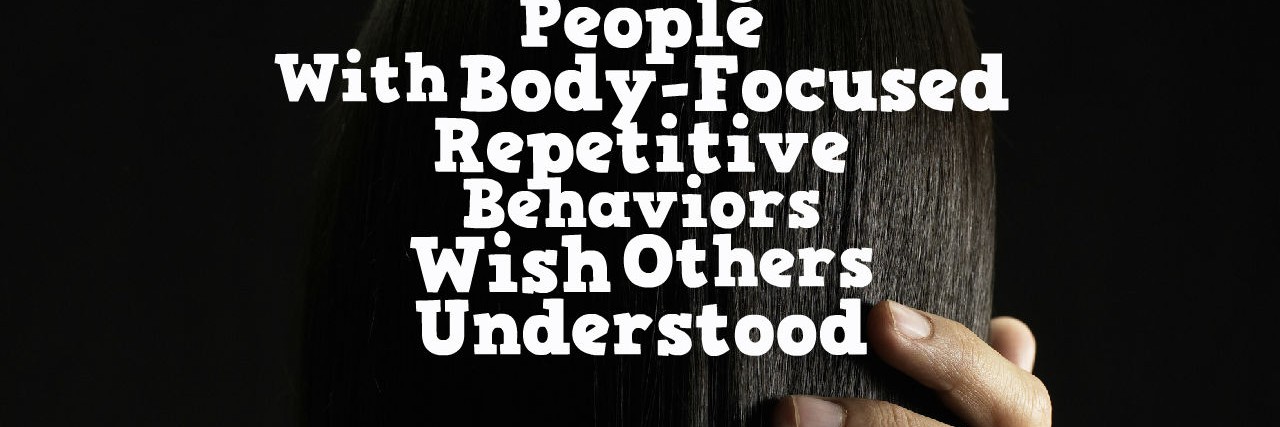Everyone has picked at a zit or pulled a loose strand of hair from time to time, but these behaviors are not always rare or harmless. Body-focused repetitive behaviors (BFRBs) are disorders that cause people to compulsively damage their bodies, usually through hair-pulling, skin-picking and/or biting. Between 2 and 5 percent of Americans live with some form of a BFRB, and the effects BFRBs can have on someone’s physical and social lives can’t be ignored.
While many treatments are available for the physical problems BFRBs cause, the social problems they lead to often go unaddressed. Many people do not understand BFRBs and unfairly ostracize people with visible marks from their disorders, which only makes things worse. To help fight this stigma, we teamed up with the TLC Foundation to ask people living with BFRBs in our communities what they want others to know about their disorders.
Here’s what they had to say:
1. “I can’t ‘just stop.’ Although I am not picking or tearing at this point, it doesn’t mean I am not thinking about it — it’s in my head constantly.” — Julia S.
2. “Just because I pick my skin doesn’t mean I’m flawed or broken. The scars and marks on my body may share a bit of my story, but they do not define me.” — Laura B.
3. “It is unconscious — I don’t even realize I’m pulling at my hair or gouging my skin. It is a reaction to anxiety, and the pain of it offers a relief from the mental pain. I have tried therapies and methods to redirect the anxiety, but I still have to buzz cut my hair so I don’t pull it all out.” — Kathryn R.
4. “I wish people understood the lengths we go to hide it and how much it affects our self-esteem. This year I decided to stop hiding my trichotillomania. I stopped wearing my hairpiece, stopped wearing makeup and most recently shaved my head. That was a huge deal for me, and people don’t realize how long and hard it was for me to get to this place of self-acceptance.” –Gessie P.
5. “I wish people would learn to empathize with what trichotillomania means for us — that in a larger context, the amount of hair and how healthy it is are all social norms that can affect our mental and physical health. Often times, when people try to comfort me with ‘it’s just hair,’ I ask them how they would feel if they had sparse growth or bald patches visible every day for the rest of their lives.” — Erin T.
6. “I wish there was more awareness among professionals in the beauty industry. There is a lot of sensitivity training for hair stylists, makeup artists, estheticians and the like that goes into working with those who have alopecia and who have gone through chemotherapy, but very rarely do they know about trichotillomania.” — Sierra N.
7. “I, like many others with dermatillomania, did not realize I had an illness that caused this behavior. I thought it was normal and harmless. It’s not.” — Kat E.
8. “Yes, I’m wearing pants in the summer, and yes, I’m hot. But I’m too afraid of feeling your eyes scrutinizing my skin, even if you don’t say anything about it.” — Melani S.
For more advice, news and research on BFRBs, visit The TLC Foundation

